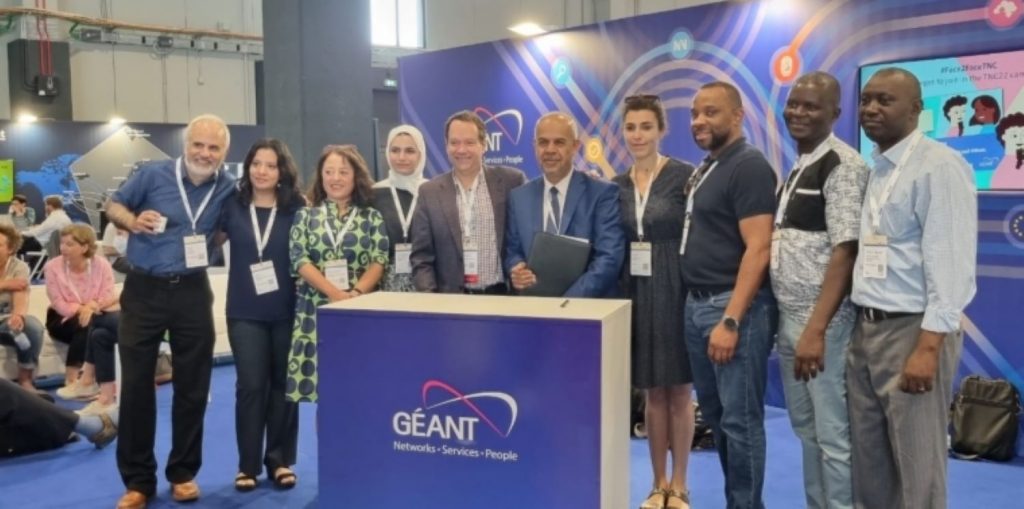This year, Research and Education Networks from all over the world met at The Network Conference 2022 (TNC22) in Trieste, Italy from 13th to 17th June to celebrate the gains in the digital transformation in the education and research community worldwide. The TNC22 was organized by GÉANT as an annual event that is hosted by its member NRENs on rotational basis. This year’s theme was “Navigating the Unexplored”. One unique thing about this year’s TNC is that it was a real-life event that allowed the participants to interact physically after the disruption that was caused by the COVID-19 that affected all in-person meetings. The conference also had basic remote participation option which allowed the virtual participants to join and enjoy the experience.
The conference kicked off with an opening plenary which featured the Nobel Prize laureate Filippo Giorgi with his talk titled “The next frontier in climate modelling: Inclusion of interactive humans in climate models.” The talk showcased the interdependency between the physical Earth System science, human science, and data science communities. Other topical areas included Network Evolution, Defining the Infrastructure of Trust, Strategic NREN Hacking, and Networking: From Project to Platforms, Data Driven Networking, and Real-Life Network Orchestration, among others. Presenters on Lightning Talks kept the sessions rolling with precisely five-minute presentations which included Multifactor Authentication between eduGain Federation, Effective Vulnerability Management, Video on Demand, and Navigating the Global Regional Education Network.
The closing plenary was given by Dr. Gihan Kamel who is an infrared beamline scientist scientist with The Synchrotron-light for Experimental Science and Applications in the Middle East (SESAME). SESAME seeks to establish Excellence of Science and technology in the region, besides, functioning as a bridge between its diverse culturally and politically conflicting societies, by building a stronger community that is able to deal with scientific challenges and hopefully beyond. It also opens doors to women scientists in the region to break stereotypes and misconceptions set against them.
Africa was represented by participants from the UbuntuNet Alliance Secretariat and six of the NRENs from the Community namely, South Africa (TENET), Madagascar (iRENALA), Uganda (RENU), Botswana (BotsREN), Zimbabwe (ZIMREN), and Burundi (BERNET). The other two sister Regional Research and Education Networks (RRENS), West and Central African Research and Education Network (WACREN) and Arab States Research and Education Network (ASREN) were also in attendance.
UbuntuNet Alliance congratulates GÉANT and its entire community for carrying out such a well-organized conference.

